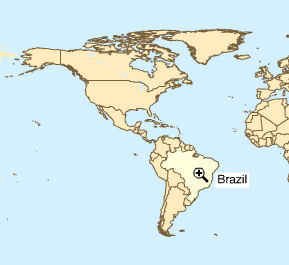Check Traveler’s Health Reports for your Destination
23 October 2011
What happens if you arrive at a foreign destination and discover there’s an outbreak of bird flu or measles or salmonella? To avoid this issue, we recommend taking a few precautionary steps:
- Check the current traveler’s health notices with the CDC. The latest information about outbreaks and current health news is there, along with preventative measures.
- Check the health reports for your destination on the same website. Simply navigate to your target destination (even selecting areas you’ll be traveling through). You’ll see regional travel notices and information on preparing for a trip to, say Brazil.
- Get the recommended vaccinations. For each destination is a list of common diseases that can be prevented by vaccines. Each regional page also lists which areas of the country are most common for a disease (so you can avoid them, if necessary).
- Take the recommended precautions. Each regional page lists symptoms for common diseases and tells you what to bring along: medicines, and other items you may need. These pages also list preventative steps you can implement to avoid getting ill.
Getting sick on your trip or bringing an illness home with you is not only not fun, it’s dangerous for those to whom you are returning. If you decide to take an river rafting trip in Africa, for example, and catch a serious case of malaria, you’ve put yourself in danger, but you also risk bringing new strains of malaria home for local mosquitoes to spread to your family and community.
Preventing insect bites
Many insect-borne diseases, like malaria and dengue, are best prevented by avoiding the insect bites from the start. Some of the most reliable insect protections are:
- Wearing a long-sleeved shirt, pants, and a hat
- Using insect repellent and frequently re-applying
- Remaining indoors during the peak hours of dusk and dawn (when insects are more active)
- Sleeping in well-screened, air-conditioned rooms or under treated netting
While you’re thinking about mosquito protection, make sure you are up-to-date with your tetanus vaccinations and remind children not to feed or touch unfamiliar animals and pets to avoid being bitten or scratched.
Be cautious about your food and water
During your trip, be cautious about the food you eat and the water you drink. Not every country has the same level of food and water safety. Illnesses from these are the leading cause of travel sickness, causing sometimes severe vomiting and diarrhea leading to dehydration.
Some of the most reliable tips for safe eating and drinking are:
- Scrubbing your hands thoroughly before eating
- Drinking only bottled or treated water
- Avoiding food that is not fully cooked
- Avoiding unpasteurized dairy products
Check out these related topics
- See Staying Healthy in Underdeveloped Countries for more information, depending on where you are traveling.
- Steps to ensure a Healthy Cruise for Everyone in your party.
- Knowing how to find a medical facility on your trip is useful as well.
- What are the health concerns when traveling in an underdeveloped country?
Damian Tysdal is the founder of CoverTrip, and is a licensed agent for travel insurance (MA 1883287). He believes travel insurance should be easier to understand, and started the first travel insurance blog in 2006.

